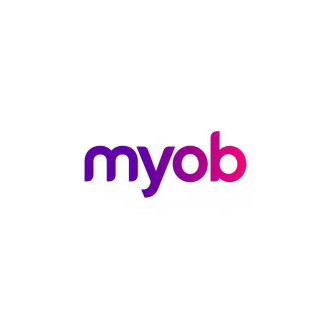How to start a Skincare Business
Over the past century, natural and holistic skincare solutions were removed from the spotlight. Why this happened is anybody’s guess. But what ensued was mass produced products full of nasties that were disguised as ‘mOdErn BreAkThROugH FOrMulAs‘. Though in the last 10 years, natural skincare brands have been paving the way forward for the industry.
Skincare businesses have changed up the narrative, educating us all on what we should (and what we definitely should not) be putting on our skin. With this, we’ve watched as the demand for natural skincare has completely knocked our socks off. With such diverse and endless opportunities within the holistic space, unique skincare brands are continuing to revolutionise the way our morning skincare regimes look.
At AUZi Insurance, every day we get to chat with some pretty awesome people that are rocking the skincare world. We’ve definitely learned a thing or 10 from the best in the industry.
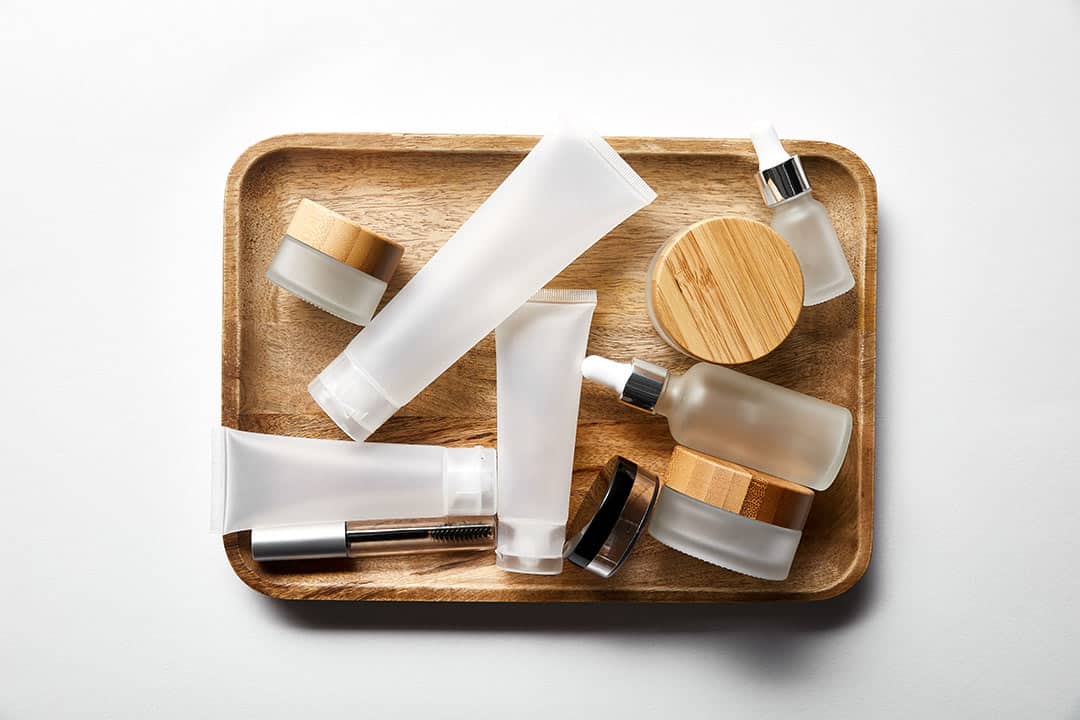
Research and Compliance
We understand that mentioning compliance usually elicits the same response – ew. Unfortunately this part is an absolute must, so we’ll get the boring stuff out of the way quickly. But why is it so important?
Research and compliance are two of the main things you need to establish to ensure you’re able to operate a skincare business legally and ethically. If you don’t truly understand what it takes to run a business of this nature, you’ll be setting up hurdles for your future self. Nobody wants to make a job harder than it has to be, right?
This industry is heavily regulated (and rightly so, we’re talking about skin here), There are many rules, regulations and Acts that apply to you. Researching will allow you to find out all you need to know in the preparation and running of a skincare business. Compliance is huge in this industry, particularly in Australia. You cannot just whip up a body cream in your home kitchen and sell it to a consumer. There are rules and guidelines that apply to the setup of where you manufacture. Your business may also need specific registrations, permits and permission to operate, especially if you will be operating from home.
If you don’t know where to start, start by doing a deep dive into all the resources and courses on Skincare Business Foundations. There you can read up on Australian Cosmetic Regulations that may apply to you. Jennifer Rudd started Skincare Business Foundations after building her own skincare business. She completed degrees in business, psychology and 10+ years in risk management, auditing and compliance and even completed a Certificate in Cosmetic Regulatory Essentials. Her website is a wealth of knowledge that is a must read if you want to start a skincare business.
AICIS
Anyone that makes soap, bath and skin products or cosmetics may need to register with AICIS. AICIS is the regulator of the importation and manufacture of industrial chemicals in Australia.
TGA
Anyone that makes therapeutic goods and therapeutic claims needs to register with the TGA. TGA is part of the Australian Government Department of Health and and is responsible for regulating therapeutic goods. Almost any product for which therapeutic claims are made must be entered in the Australian Register of Therapeutic Goods (ARTG) before it can be supplied in Australia.
Getting down to Business: The Business Essentials
Your Business name
It may be too easy to choose a name you love and just roll with it. But in Australia, it is encouraged to protect your brand name by IP law. So, it is crucial that you jump onto the government website and confirm that the business name you have your eye on isn’t already trademarked. Otherwise you could find yourself in a pretty sticky lawsuit.
Your Business Plan. A must have.
Once you have the research and compliance sorted or have engaged a third party to help with that side of things, then you need to plan. A Business plan is essential for any small business. Many small businesses do eventuate from a hobby, or the owner has simply just fallen into it. Because of this, many businesses skip this step, though they feel it in the long run as it is just as crucial as any step in starting a business. Having a plan will not only help with your ideas and direction, it will ensure you are financially capable and your business idea is a realistic one at that.
Your business plan can be as minimal or as extensive as you like though the more in depth the better. Start with sections including the summary and concept ideas, budgeting, profit and loss statements/estimates, marketing strategies, insurance costs and requirements, disaster recovery and adaptation plans for growth and expansion.
Just a heads up* – when you’re requesting finance or a business loan, they will generally want to see your business plan.fnicnas
Insurance
Why do you need Insurance? Simple. To protect you from a consumer making a claim against you. Trips and falls happen, accidents happen and bodily injury claims can happen when making products of such a sensitive nature. Ask yourself this question? What would you do if a consumer suffered a serious reaction that resulted in bodily injury from a facial serum and you didn’t have Insurance? By contacting a Broker like AUZi, they can provide you with all the information required to properly insure your business.
Accounting
Taking control over the financial side of your business is crucial as this is what will make or break you. Today, you have access to several free accounting software to ensure you have set yourself up for success. Also, make sure you are aware of your tax obligations as a small business. Here’s a couple of top contenders.
If you're going to do it, do it properly
Did you know that using an unprofessional email address affects the way your customers perceive your business? Did you also know that not every free email provider is business safe? As in, you may or may not receive an email from your customer!
Ideally, you would purchase an email like Neil@bloomskincare.com. Though we know when launching a business, things can be tight for a while. You should at least create a professional email account like bloomskincare@gmail.com and definitely not the Neillovessushi@hotmail.com account you created when you were 12. Do your research and make sure you’re aware of which email provider will be the most reliable for your business – hint hint Hotmail and outlook are not it.
Where is this all going to happen?
Using your home as a place of business means you need to comply with particular state, territory and local government regulations.
The registrations and licences you need for your business will vary depending on your industry. Check with local councils to ensure you are even able to run a business or manufacture from your home. Also, make sure your Home & Contents Insurer and Landlord are aware of your business if you are running it from your home. Please also check with any other relevant Insurer you have.
When it comes to manufacturing, will you be doing this yourself or will you be engaging a third party to manufacture on your behalf? Remember, for insurance purposes, as soon as you label a product, you are deemed the manufacturer.
What's your niche?
Don’t try to do it all. While in the long run you may very well be the proud entrepreneur behind an extensive skincare line, in the beginning it’s best to focus on one thing. Perfect it, do it really well, then expand. This will help you build your brand, your mission and your customer base without going into small business burn out.
Take your time in discovering your brand values and the aim of your business. Make sure all of this is consistent throughout your business and the new product lines to come.
Get Moody with a Mood Board
Every passion project starts with a mood board. Mood boards are the best way to really visualise your ideas and bring your project to life. From branding colours, logos, and textures to the look of the containers you will be using for your products. Doing your research and getting it onto a mood board will also ensure that your idea is unique. And, it has a point of difference to ensure you stand out in a very competitive industry.

Don’t be afraid to seek out help with your branding and design. Your skills and passion may lay with creating your products, while there are some magicians out there that can really build a killer brand. You would be surprised at how a branding professional can produce exactly what you envisioned but weren’t able to translate into reality yourself.
Start Creating (and testing, testing, testing)
If you have already been making products for some time for either yourself or close friends and family, then the jump to being a business can be scary. Because of the nature of skincare products, there are strict guidelines to adhere to when manufacturing. You must conduct stringent testing, batch testing and detailed recording of every product that you make.
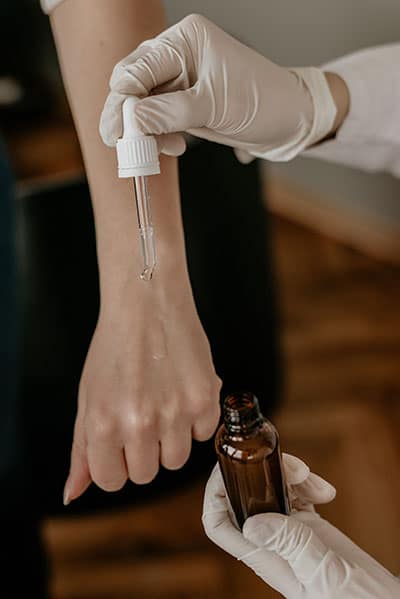
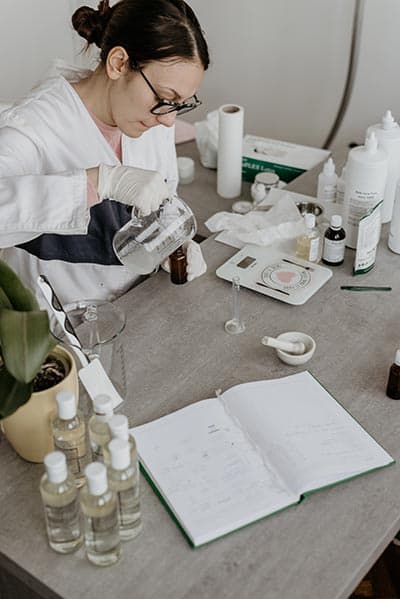
Marketing your Skincare Business
Unfortunately, your products aren’t going to sell themselves. But we’re lucky enough in today’s digital world that there are endless opportunities to market your business for free, and other strategies that are still affordable for small business.
Social Media
This one is a no brainer. In recent years, if you don’t have a Facebook and Instagram, does your business even exist? As a small business owner, you’re going to be very busy. So, don’t put pressure on yourself to be on every single social platform, or to post every day. Figure out what platforms are best for your industry and make sure you have a consistent presence on there. Remember to use beautiful photos of your products to keep it professional. Customers should be able to take one look at your social media and know what you sell, what your products are for, how to buy them and how to contact you. There are plenty of other tips for using Instagram for business that can really elevate your brand.
A handy thing about Facebook is many of the community groups post weekly small business threads where you can share your business, take advantage of free things like this!
Website or Ecommerce Platform
If you can afford to pay for a website or you’re capable of building one yourself that’s awesome. But don’t fret if that simply isn’t possible at first. Take a look at the other options and see what is best for your business. The most popular selling platforms today are Etsy, Shopify, WIX online markets and handmade platforms like madeit.
If you’re not wanting to go the online route just yet (although we definitely recommend it), you can start out by setting up a market stall at your local markets. Just make sure you’ve got business cards on hand so customers can find you on social media after.
Collab with your fellow Small Business Owners
You put their products in front of your customers and they put your products in front of theirs… sounds like a pretty good deal right? If done properly, collaborating with a fellow small business is a brilliant idea. It’s best to collab with a business that complements your brand and shares your values and mission.
For example, an organic cruelty free skincare business collaborating with a organic cruelty free candle business to create gift sets for Mother’s Day.
Check in with your customers
Your customers can sometimes be your best friends and your best critics. This can help mould how your business progresses and evolves. So, don’t forget to provide an avenue for them to leave you a review. Not only does it tell you what you need to improve on or what you’re doing amazing at, it also provides social proof and trust to potential customers.
Psst! Google Reviews also now contribute towards SEO efforts. The more trustworthy and authoritative you seem, the higher you rank.
Loyalty is also important. When customers are loyal it’s because they love the product, they love the cause, and they love supporting your Small Business. If your customers are sharing the love, make sure it’s clear in your marketing. Share reviews on your social media and add them to your website too.
The first few years of launching a business can be tough. But if you implement some simple plans and processes and stay true to your values and mission, it can really take the load off some of those daunting tasks – good luck!
Did you learn something new or Enjoy the post?
Why not share it to your network?

Your Dedicated Contact
Got a question? Give our broker, Nicole a call today on 1300 939 698 or email at nicole@auzi.com. You can also drop us a line below if you have a question or feedback. Nicole will get back to you ASAP.
More on the Blog

Sustainable Business Practices: What to do when starting a Small Business
Sustainable Business Practices: What to do when launching a Small Biz It’s become pretty clear to us in recent years

Starting a Small Business: The Business Essentials every Small Business needs
Starting a Small Business: The Business Essentials Seeing out that same old mundane work day five days a week has
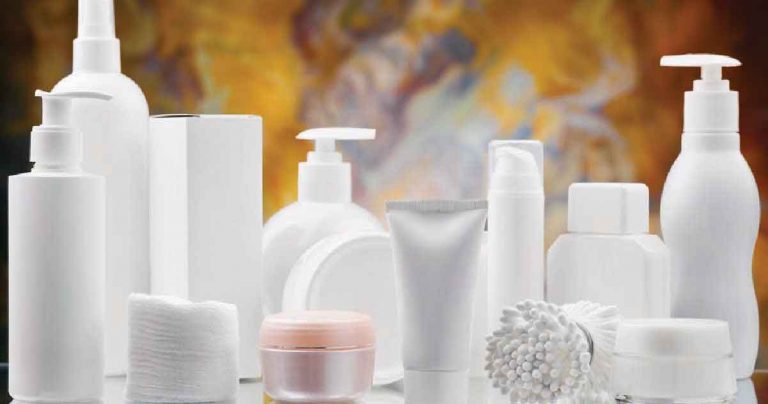
Compliance For Soap And Skincare Makers
The Importance of Compliance for Soap and Skincare Makers Scouring the internet to find accurate (or easy to understand) information
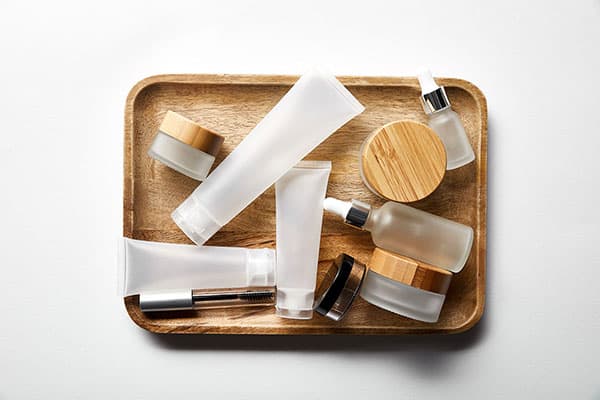
AICIS: The Basics
AICIS: The Basics We have created this ultimate guide for AICIS: The Basics. The Australia Industrial Chemicals Introduction Scheme (AICIS)



